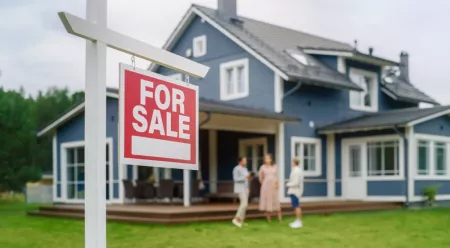In Ontario, landlords are responsible for property maintenance in accordance with the Residential Tenancies Act’s standards. Keep reading to learn more about these standards and what tenants can do when their landlords fall short.
Ontario Landlord Responsibilities for Repairs: Overview
Ontario’s Residential Tenancies Act leaves no doubt regarding a landlord’s obligation to keep their property in good condition. At some point or another, this will involve repairs to items that experience normal wear-and-tear, such as:
- Plumbing, HVAC, and electrical systems
- Large appliances (i.e. stoves, laundry machines, etc)
- Windows
- Locks
- Flooring
- Common areas such as lobbies, pools, gyms, and patios
Landlords must keep these items in good working order, even if that means replacing them when they’ve been damaged beyond repair. They don’t have to replace an item with the latest and greatest version, mind you – just with something functional, even if it’s used.
Additionally, the Maintenance Standards found in Ontario’s Residential Tenancies Act specify that all upkeep should exemplify “good workmanship.”
These standards apply even if the lease agreement contradicts them or the tenant knew about a particular maintenance issue before moving in.
These standards don’t apply, however, to a tenant’s own belongings, including furniture and electronics. The landlord has no responsibility to maintain these items or even insure them against theft or damage, which is what tenant insurance is for.
Ontario Landlord Responsibilities for Repairs When the Tenant is At Fault
While landlords are responsible for general maintenance and repairs, damage caused by the tenant’s negligence or malice is a different story.
Tenants must cover the cost of remedying such damage or perform the repairs themselves. This is also true if the tenant’s guest was responsible for the damage or if the damage took place in a common area outside of their unit.
If tenants don’t uphold their end of the bargain by addressing such issues, the Residential Tenancies Act considers that to be grounds for eviction.
Tenants can also find themselves in hot water if they ignored an issue, only informing the landlord when it got severe. To avoid this, tenants should notify the landlord as soon as an issue requiring attention presents itself.
How Long Does a Landlord Have to Make Repairs in Ontario?
While the Residential Tenancies Act is unequivocal regarding a landlord’s obligation to maintain their property, it doesn’t give a specific timeframe in which maintenance issues must be addressed. As with many other timing-related matters, the act simply calls for landlords to be reasonable.
The same requirement for reasonability applies to the landlord actually entering the home in order to assess damage or make repairs. As we wrote in this article, landlords must provide 24-hour notice of their intent to enter between the hours of 8 AM and 8 PM.
Landlords also need to be reasonable regarding the amount of time they spend in the unit and how often they enter.
What Tenants Can Do if a Landlord is Not Fixing Repairs in Ontario
If a tenant feels as though their landlord hasn’t been reasonable in addressing maintenance concerns, they can lodge a complaint with Ontario’s Landlord and Tenant Board using the T6 form.
The board advises a tenant to make sure their landlord is indeed aware of the issue before filing a complaint. This is often best done in writing and the tenant should keep a copy for future reference.
Additionally, the board suggests that tenants give landlords a reasonable amount of time to address the issue before filing a complaint.
If the tenant is seeking compensation, they’ll need to apply within one year of the maintenance issue presenting itself.
Potential remedies outlined by Ontario’s Landlord and Tenant Board include:
- Direct compensation from the landlord to the tenant
- The tenant paying partial rent for a certain duration
- The landlord being ordered to repair or replace the item
- The landlord being ordered to reimburse the tenant for the cost of fixing the issue themselves
- The tenant being allowed to break their lease early (this option is only used when the tenant requests it or the property is deemed unsafe)
After filing a complaint, the tenant will be required to testify at a hearing. The Landlord and Tenant Board recommends bringing evidence of the landlord’s neglect (i.e. pictures of the problem, work orders, copies of written correspondence, etc).
The landlord will be allowed to defend themselves against accusations of negligence at the hearing.
Tenants Should Not Withhold Rent
Notably, the Landlord and Tenant Board does not advise tenants to withhold rent, even if they feel maintenance work has been neglected. Landlords are legally justified to begin eviction proceedings against tenants who refuse to pay rent on time, according to Community Legal Education Ontario.
Tenants are better off filing a T6 and submitting a Request to Pay Rent to the Board on a Tenant Application About Maintenance. If granted, this request will let the tenant pay rent directly to the Landlord and Tenant Board until the case is resolved, at which point the landlord may receive some or all of the money depending on the ruling.
Landlords Have Recourse, Too
Landlords can also lodge complaints with the Landlord and Tenant Board if tenants don’t fulfill their obligations concerning maintenance and repairs. They can pursue financial damages or seek approval for an eviction.
The landlord’s complaints will be addressed in a hearing, during which the tenant will have an opportunity to defend themselves.
Surex Helps Landlords and Tenants Find Great Insurance Rates
Surex helps Canadians find the best rates on several types of insurance, including tenant insurance and home insurance.
These insurance policies can help landlords and tenants avoid any hassle concerning the cost of repairing or replacing their belongings. Learn more about how we operate and start a quote!
Frequently Asked Questions
How long does a landlord have to fix something in Ontario?
Ontario’s Residential Tenancies Act does not specify a particular timeframe in which landlords need to address maintenance issues. It simply says landlords have to do so within a reasonable amount of time. Tenants can file complaints if they feel like this standard has not been met.
Can you withhold rent for repairs in Ontario?
Tenants are not allowed to withhold rent for repairs in Ontario. In fact, doing so can be grounds for eviction. You’d be better off filing a complaint and waiting until it’s resolved to receive reimbursement.
Do landlords have to fix broken things?
Landlords have to fix broken things if the damage was caused by normal wear and tear. Landlords don’t have to fix items that were broken by the landlord’s negligence or improper use.
Who do you call when your landlord won’t fix things?
Tenants can call their local building inspector, who can assess the situation in-person and move things forward. Tenants can also file complaints with the Landlord and Tenant Board of Ontario in order to receive compensation for issues that have affected their ability to enjoy or use their dwelling.
Do landlords have to shovel snow and take care of landscaping?
If the property is an apartment building or some other complex of units, the landlord is responsible for taking care of outdoor common areas. If the property is a detached house, however, the law is less clear regarding who is responsible for outdoor maintenance. This will usually be addressed in the lease agreement.



